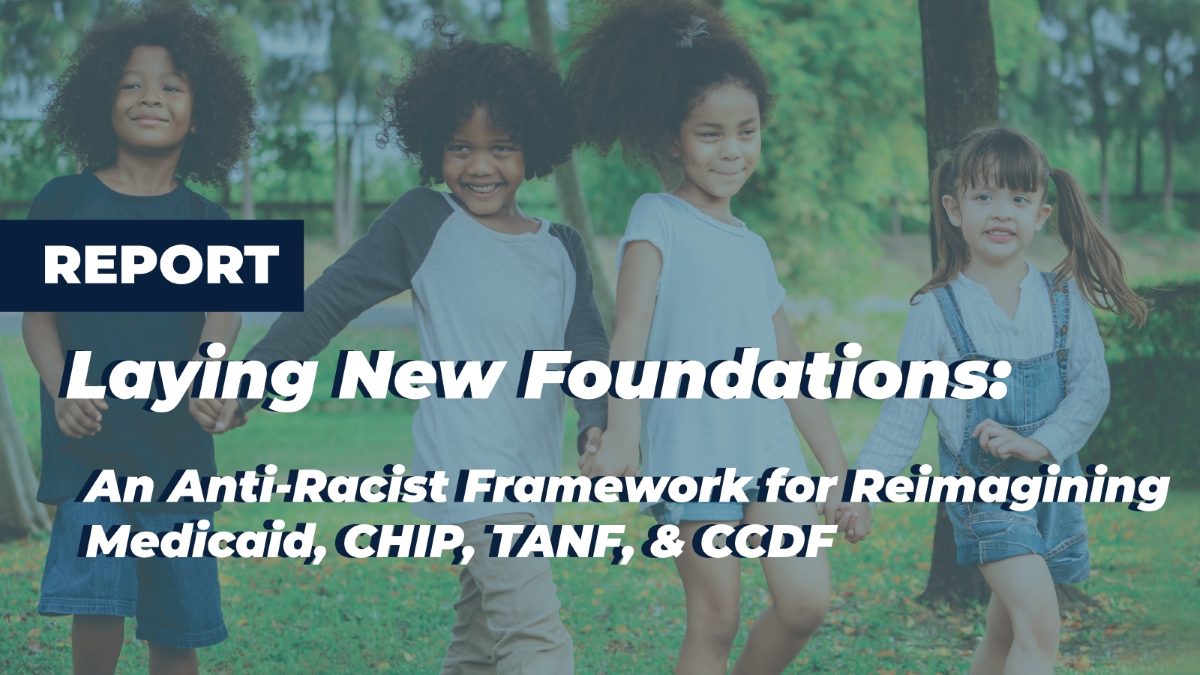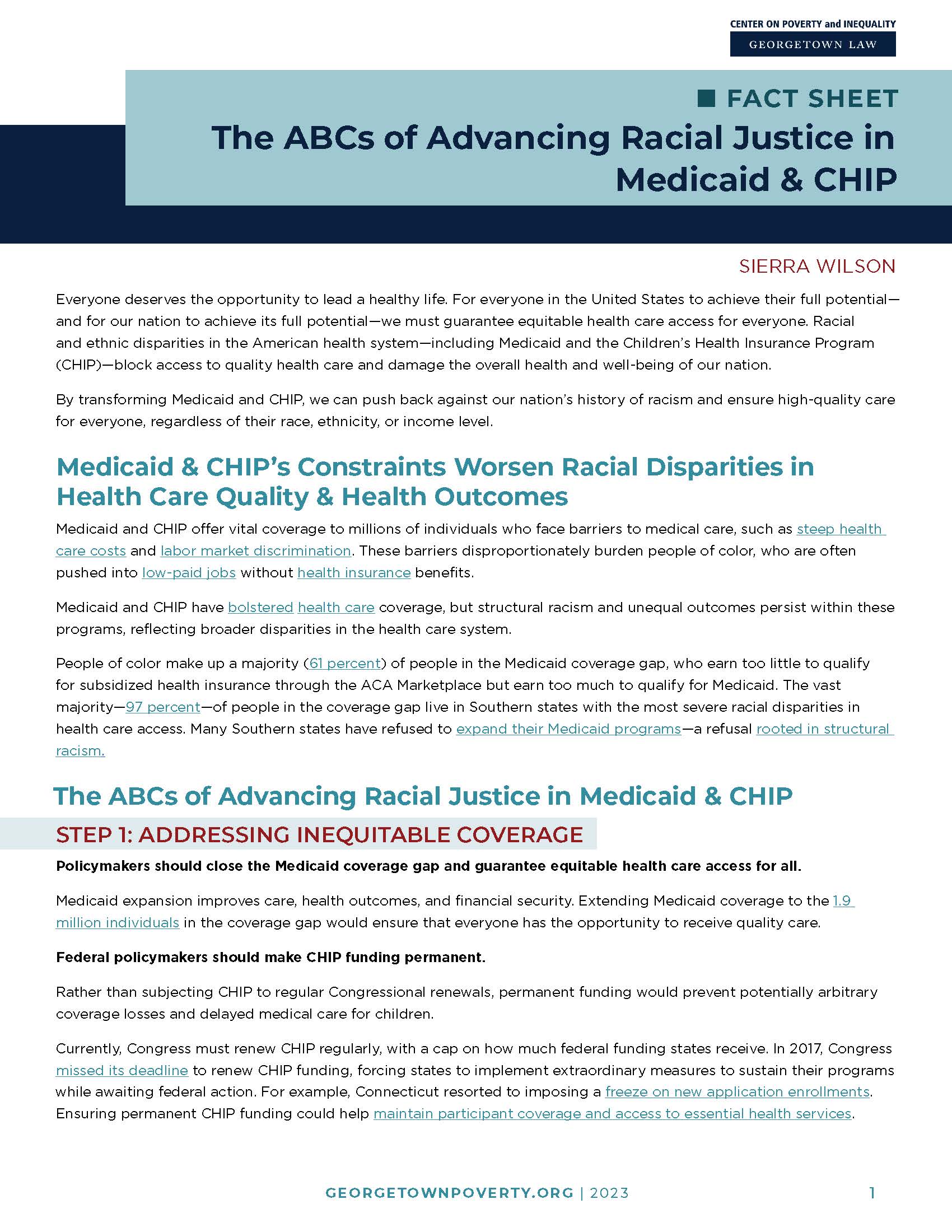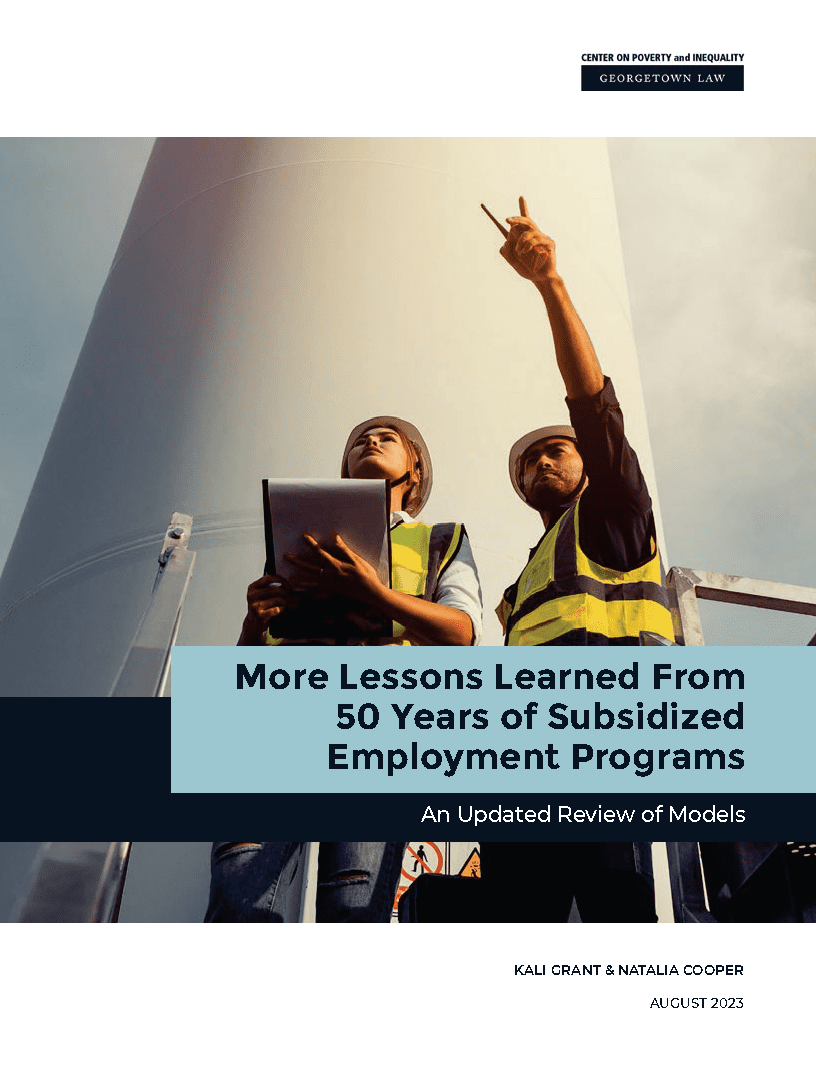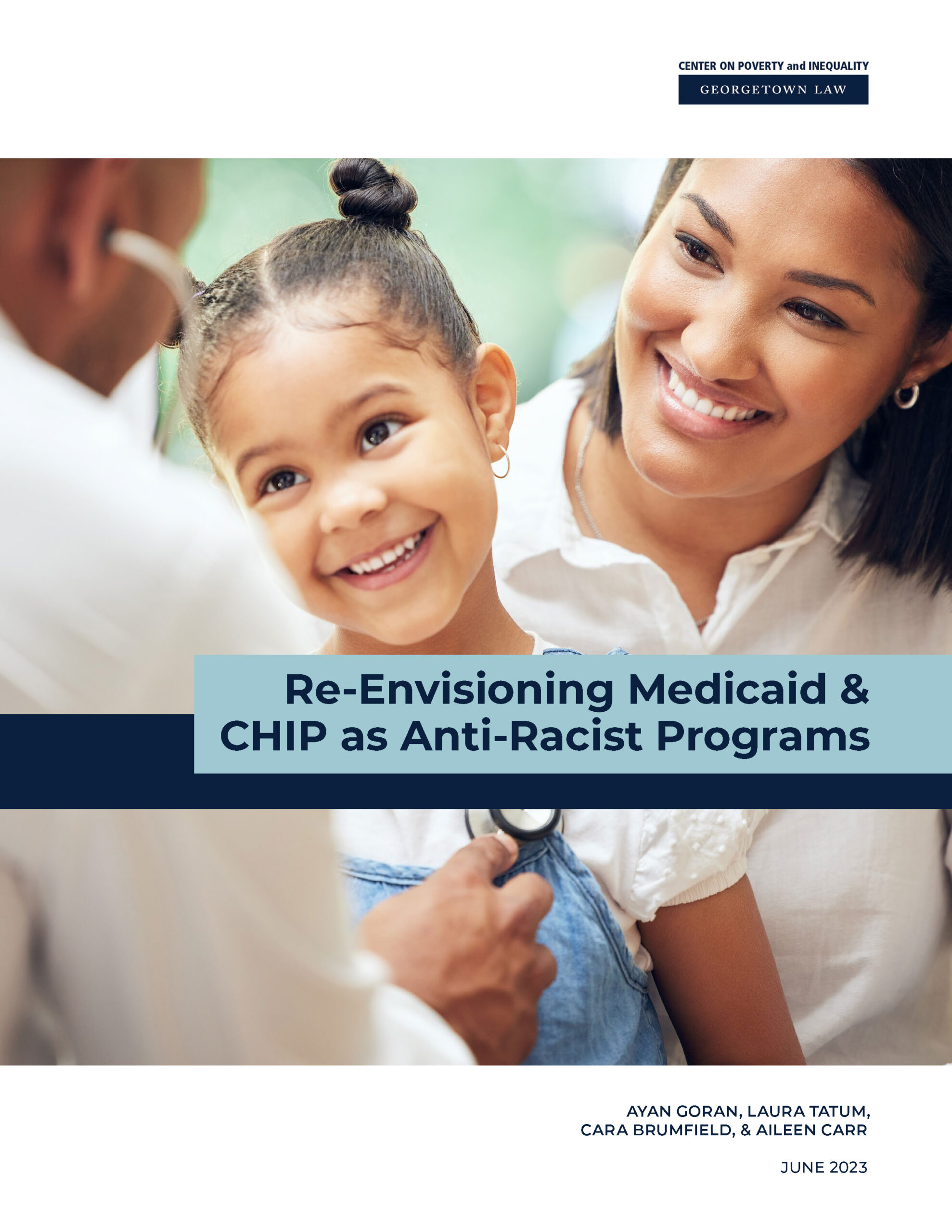Publications

Everyone deserves the opportunity to lead a healthy, stable, and economically secure life. Many government programs aim to provide a stable foundation for all families, but fall short due to legacies of racism. This report puts forth a visionary framework with principles for anti-racist policymaking, focusing on Medicaid, the Children’s Health Insurance Program (CHIP), the Child Care and Development Fund (CCDF), and Temporary Assistance for Needy Families (TANF). It includes three spotlights from leaders in Puerto Rico, Texas, and the District of Columbia applying these principles to advance racial and economic justice in their communities.

Child care is an essential element of our social infrastructure that supports child development, family financial stability, and economic growth. But structural racism and sexism have led to the underinvestment and undervaluation of child care in the United States. This brief, published with the National Women’s Law Center (NWLC) offers a new, anti-racist vision for transforming the Child Care and Development Fund (CCDF) into a program that actively pushes back against structural racism and advances racial equity and economic prosperity for all families. It proposes recommendations for advancing a more equitable child care system.

Administrative data can supplement census data and improve the accuracy and quality of the census. However, poorly designed administrative data projects may inadvertently exacerbate existing disparities that stem from census undercounts, including among people of color and immigrants. This blog argues that administrative data linkage cannot advance equity without improved representation of historically undercounted communities in both census data and administrative data.

The 2020 Census was the first census to incorporate administrative data as a cornerstone of its design to improve survey quality, reduce costs, and lower burdens for everyone responding to the census. To acquire administrative data, the Census Bureau enters into data sharing agreements with government agencies and commercial entities. However, the terms and details of these data sharing agreements are typically inaccessible to the public. This blog highlights the advantages and potential risks of data sharing and underscores the need for increased transparency in data sharing agreements.

All children deserve safety, protection, and the opportunity to thrive. And all families deserve support in their efforts to provide a safe and stable environment for their children. The child welfare system is vital to protecting children—but it has disproportionately failed American Indian and Alaska Native, Black, and Latinx children and families. By prioritizing preventative services, programs, and kinship care funded by the Family First Prevention Services Act, child welfare programs can increase the safety and well-being of children and families and reduce unnecessary family separation and foster care placement. This brief highlights progress made by federal child welfare administrators and outlines additional steps they can take to reduce foster care placement through equity-focused implementation of Family First in 2024 and beyond.

Everyone deserves the opportunity to lead a healthy life. But racial and ethnic disparities in the American health system—including Medicaid and the Children’s Health Insurance Program (CHIP)—block access to quality health care and damage the overall health and well-being of our nation. This fact sheet offers three recommendations to transform Medicaid and CHIP into anti-racist programs.

All children and their families deserve resources to take care of their needs, regardless of their family structure. The child support program—which obtains and disburses financial support for millions of children and their custodial parents—should improve family economic security. Ensuring regular child support payments are directed to families and eliminating harmful enforcement measures against parents who are unable to pay would help foster child and family well-being. This brief highlights progress made by federal child support administrators and outlines additional steps they can take to build a more equitable child support program in 2024 and beyond.

Subsidized employment programs are engines for economic opportunity, stronger labor markets, and healthier communities. This blog highlights select evidence demonstrating that subsidized employment is good for workers and employers and can help create a strong, inclusive economy.

Subsidized employment is an engine for economic opportunity, stronger labor markets, and healthier communities. It can mitigate structural barriers to work, such as racial discrimination in the labor market, and be adapted and scaled to meet specific worker, employer, and community needs. This report reviews a half-century of evidence on subsidized employment’s power to increase employment and incomes, reduce poverty, and ensure a more inclusive economy for everyone. It is the second edition of a 2016 report, “Lessons Learned from 40 Years of Subsidized Employment Programs.”

Racial and ethnic disparities in the health care system have long impeded our nation’s health and well-being. For everyone in the U.S. to achieve their full potential—and for our nation to achieve its full potential—we must ensure equitable access to high-quality health care. This report presents an anti-racist re-imagining of the Medicaid and CHIP programs that actively reckons with the racist history of health care coverage. The report offers recommendations to advance racial equity in Medicaid and CHIP. It also provides principles to guide anti-racist policy transformations that center program participants and their communities.
